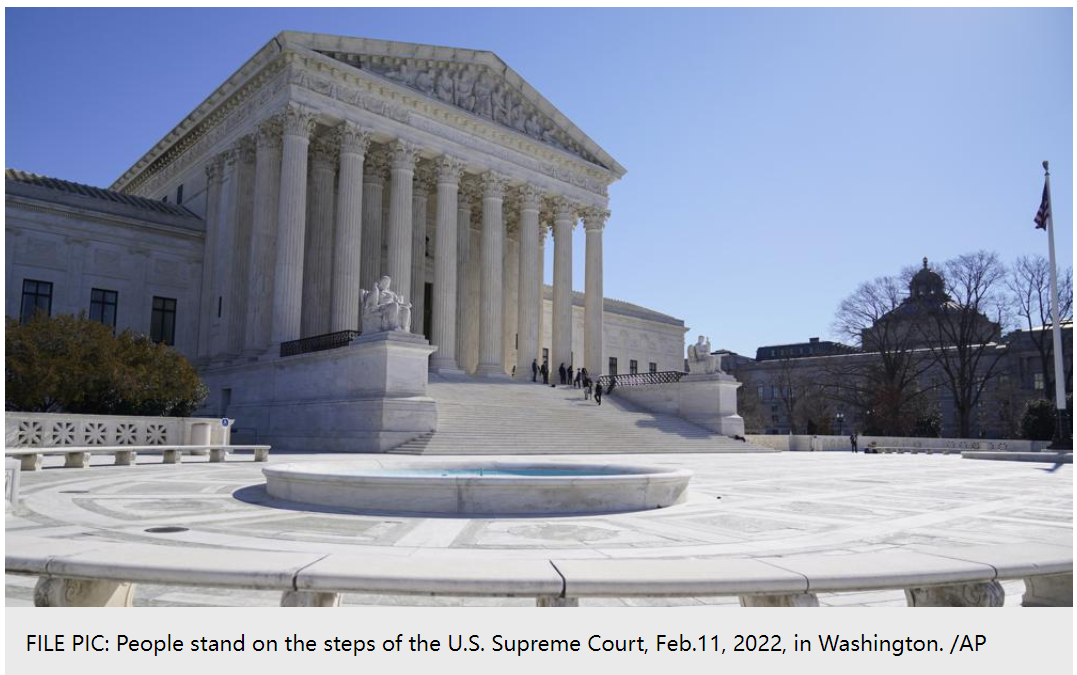The US supreme court has rejected requests from Republicans in North Carolina and Pennsylvania to overturn electoral maps imposed by the state supreme court in both places that make elections more competitive.

The justices ruled 6-3 on Monday not to block the new North Carolina maps from going into effect, with justices Samuel Alito, Neil Gorsuch, and Clarence Thomas saying they would have paused the state supreme court’s ruling.
In the Pennsylvania case, there were no noted dissents from the court’s decision. That case will now go to a panel of three federal judges and Republicans can appeal a ruling from whatever they decide to the US supreme court in the future.
Both decisions are a win for Democrats politically, as well as voting rights groups that have turned to state supreme courts recently to try and police partisan gerrymandering. The US supreme court said in 2019 that federal courts could not police partisan gerrymandering, but said state constitutions could.
READ MORE
more-usa-heavily-armed-troops-on-the-way-to-europe
- Ukraine Says Russian military is targeting civilians
- Two Russian Military transport planes shot down over Ukraine.

In North Carolina, the state supreme court struck a congressional map that would have likely given Republicans an advantage in 10 of the state’s 14 congressional districts, in a state that is extremely competitive. The map was so egregiously distorted towards Republicans that it ran afoul of a provision in the state constitution that guarantees free elections. After Republicans failed to produce a fairer map, the supreme court replaced it with a plan that gave the GOP a 7-6 advantage with one highly competitive seat.
Republicans wanted the US supreme court to block that map, arguing that the US constitution explicitly gives state legislatures the power to set the “time, manner, and place of elections”. By drawing new districts, they argued, the state supreme court have overstepped its authority. Embracing such an argument, experts warned, would emboldened state legislatures to enact new restrictive voting measures with little oversight.
The court issued its decision on an emergency basis and did not explain its reasoning.
Writing a separate concurring opinion, Justice Brett Kavanaugh said it was too close to the state’s primary to impose new maps, but said the case “advanced serious arguments on the merits” and that the court should hear it with full briefing an argument.
“Today’s move by the court reinforces that legislatures do not have a ‘free pass’ to violate protections against partisan gerrymandering when drawing districts that undeniably hurt voters. North Carolinians can now expect to vote in elections under fair congressional maps free of back-door dealings, extreme partisanship, and racial discrimination,” said Hilary Harris Klein, senior counsel for voting rights at the Southern Coalition for Social Justice, which represented some of the challengers in the North Carolina case.Advertisement
Even though the court declined to step in on Monday, there are signs it may be willing to in the future.
In a dissent joined by Gorsuch and Thomas, Alito signaled a willingness to limit the power of state supreme courts when it comes to policing partisan gerrymandering and the authority of a legislature to set election rules. “If the language of the elections clause is taken seriously, there must be some limit on the authority of state courts to countermand actions taken by state legislatures when they are prescribing rules for the conduct of federal elections. I think it is likely that the applicants would succeed in showing that the North Carolina supreme court exceeded those limits.”
In Pennsylvania, the state supreme court picked a new congressional map after the state’s Republican legislature and Democratic governor were unable to agree on a plan. The plan gives Republicans an 8-6 advantage and gives the state three highly competitive districts, according to 538.
Republicans similarly argued that the state supreme court overstepped its authority, but the supreme court rejected the argument.
“This case has now been referred to a three-judge court, and the parties may exercise their right to appeal from an order of that court granting or denying interlocutory injunctive relief,” the justices wrote.
Wisconsin Republicans are also appealing a ruling from the state supreme court setting new electoral districts. That case remains pending before the court.









